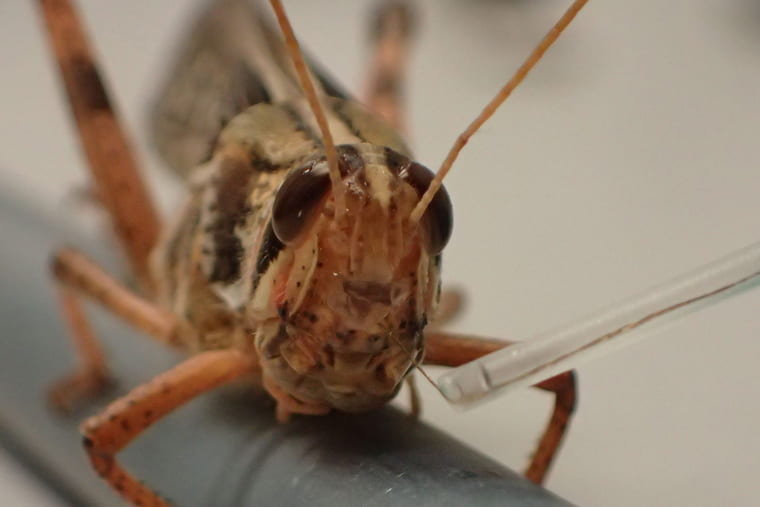The inviting smell of a freshly baked cookie immediately triggers a motor response to search for the source of that smell. Often the cookie can be easily found.
This everyday event that we perform without a thought is an amazing feat that combines our superior ability to smell the cookie and computational prowess to determine the direction to move toward the cookie. Robots that possess similar capabilities are yet to be developed as the basic biological principles that are needed to perform this task are yet to be fully understood.
The ability to study neural responses in behaving insects is essential to understanding the robust solutions that biological systems have developed for several engineering problems. Researchers at the McKelvey School of Engineering at Washington University in St. Louis have long sought to understand locusts and their power of sensing, computing and locomotory capabilities.
Barani Raman, PhD, a professor of biomedical engineering at the McKelvey School of Engineering, is leading a multidisciplinary team to study how the locust brain transforms sensory input into behavior with a four-year $4.3 million grant from the National Science Foundation’s Integrative Strategies for Understanding Neural and Cognitive Systems program. The grant converges years of research in Raman’s lab with that of his longtime WashU collaborators, including McKelvey’s Shantanu Chakrabartty, PhD, a professor of electrical and systems engineering, Srikanth Singamaneni, PhD, a professor of mechanical engineering and materials science, and Alexandra Rutz, PhD, an assistant professor of biomedical engineering, as well as Yehuda Ben-Shahar, PhD, a professor of biology in Arts & Sciences.
“Insects are an engineering marvel,” Raman said. “They possess diverse sensing modalities and locomotory responses yet contained in such a small package. We want to engineer tools to study the amazing capabilities of these relatively simpler organisms.”
